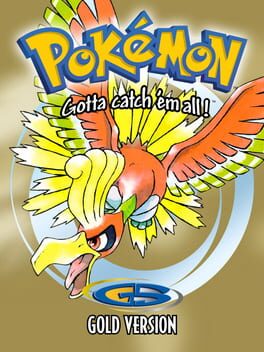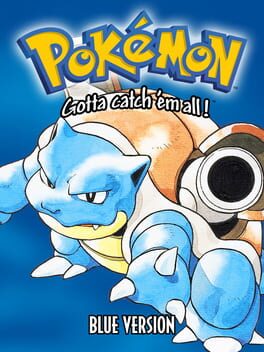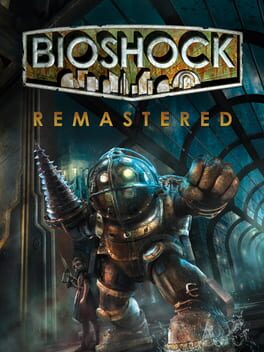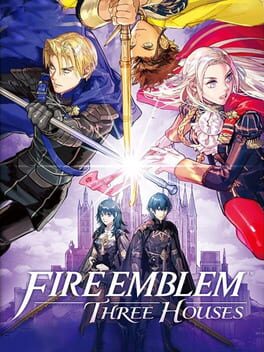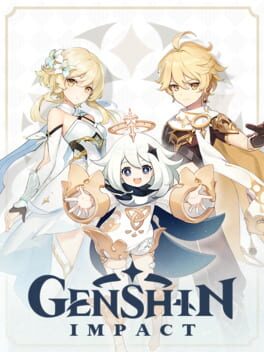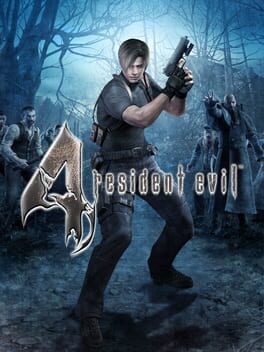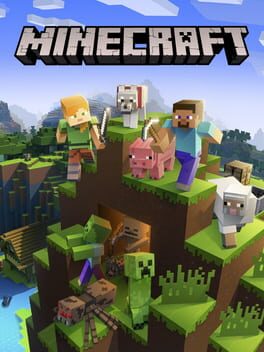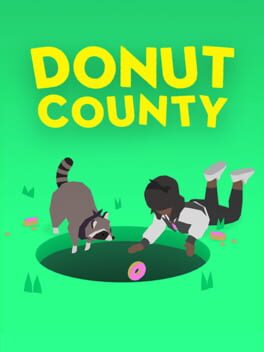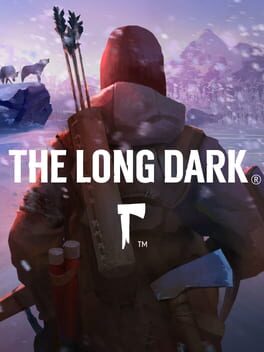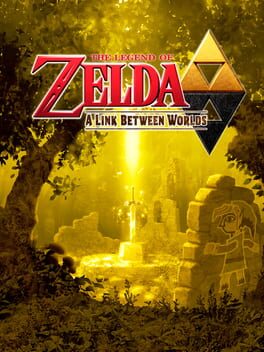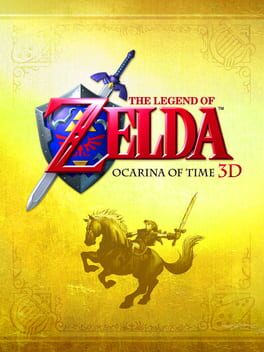dobbyshmurda
379 Reviews liked by dobbyshmurda
Pokémon Gold Version
1999
Played up through the 7th badge (these games go by quick with 10x speedup!) I was actually surprised at my bad reaction to G/S: in my childhood mind, these were the best two games. Likewise, I was surprised how good R/B felt.
To my surprise, G/S feel a bit flat. The locations and landmarks feel more touristy than anything: rather than the way that R/B's world was a little denser and intertwined and felt like it was drawing on some kind of Japanese childhood/adulthood, G/S's map feels a bit more arbitrary with various 'tourist destinations' dropped in here and there, weirdly intertwined with Team Rocket and Rival stuff, scouring the maps for missed HMs. I appreciate the effort to tie real world history to the game, but it feels a bit dropped in - the mythology of pokemon themselves don't feel that tied to the systems - being a kid and getting badges, fighting pokemon.
The Radio, night/day, new balls, phone calls, etc - these are all new and sort of cute but they also don't feel super relevant to the main game based on what they amount to.
Overall there are still some nice moments: I liked the underground walkway with trainer fights this time! The way the northern/northwestern reaches of the map seem more steeped in forests and caves is an interesting contrast. Seeing regions guarded for cultural reasons (Dragon's Den guarded if you don't tame dragons, Tin Tower if you're missing a badge) - these border on interesting, but they still feel detached from the main character - a little kid who for some reason ends up catching Gods and taking down terrorists.
You can really see the pokemon formula start to take shape here: new pokemon, a new villain group, another kid who for some reason ascends to divinity-level strength against a world which contradictory..ly tries to stay grounded. A world obviously inspired by some real place, but that canonically refuses to be linked to that real place.
I have no doubt that some of the later games manage to balance the battles, complexity, and story better - but none of those things are really what made Red/Blue so interesting to begin with.
To my surprise, G/S feel a bit flat. The locations and landmarks feel more touristy than anything: rather than the way that R/B's world was a little denser and intertwined and felt like it was drawing on some kind of Japanese childhood/adulthood, G/S's map feels a bit more arbitrary with various 'tourist destinations' dropped in here and there, weirdly intertwined with Team Rocket and Rival stuff, scouring the maps for missed HMs. I appreciate the effort to tie real world history to the game, but it feels a bit dropped in - the mythology of pokemon themselves don't feel that tied to the systems - being a kid and getting badges, fighting pokemon.
The Radio, night/day, new balls, phone calls, etc - these are all new and sort of cute but they also don't feel super relevant to the main game based on what they amount to.
Overall there are still some nice moments: I liked the underground walkway with trainer fights this time! The way the northern/northwestern reaches of the map seem more steeped in forests and caves is an interesting contrast. Seeing regions guarded for cultural reasons (Dragon's Den guarded if you don't tame dragons, Tin Tower if you're missing a badge) - these border on interesting, but they still feel detached from the main character - a little kid who for some reason ends up catching Gods and taking down terrorists.
You can really see the pokemon formula start to take shape here: new pokemon, a new villain group, another kid who for some reason ascends to divinity-level strength against a world which contradictory..ly tries to stay grounded. A world obviously inspired by some real place, but that canonically refuses to be linked to that real place.
I have no doubt that some of the later games manage to balance the battles, complexity, and story better - but none of those things are really what made Red/Blue so interesting to begin with.
Pokémon Blue Version
1996
This game is such an interesting abstraction of the Japanese cityscape and countryside: I would say it feels most not like a central-Tokyo but like it was designed by someone who lived in one of the major cities an hour or two from central Tokyo. You get the occasional dense area with a skyscraper or two (Saffron City), dense collections of single family homes (Celadon City), but there's still the countryside running through mountains and forests, farming towns here and there.
That is easily Pokemon Blue's most interesting trait: it's a world based on reality, but not in the direction of an Earthbound that's more focused on constantly parodying America or people. Pokemon Blue is a game more interested in the idea of adding a layer of mystery (world of pokemon) and exaggeration (everyone catches pokemon!) to the mundane normal everyday life. I imagine this (and the affordances of the Game Boy and the 151 pokemon, and the marketing efforts of Nintendo) is what helped to capture the minds of the initial millions of players! I'm not sure how much of that exists today, where the series feels a bit more phoned in and calculated.
It's honestly quite disturbing the extent that Satoshi Tajiri's artistic idea become full-on media-mix/anime-ified - most symbolic of this is how sprites underwent slight revisions between the original JP red/green to US red/blue to yellow to bring things 'more in line with the anime' - a direction which, I think, informs the series direction today: something that's more interested in doing only what's necessary to keep the brand going, rather than an interest in the kind of design fundamentals Tajiri/team had that allowed them to conceive of Pokemon Blue in the first place.
The story in Blue is most interestingly not at all much of an anime story. Nobody is really fleshed out except potentially Giovanni, the game feels like a series of vignettes where the sport-like Pokemon battling at times briefly overlaps with the reality of our world. Lt. Surge fought with pokemon in a war, Mew is from South America, the moon landing happened in 1969, people are addicted to gambling, there's a crime syndicate, pokemon can die and become ghosts. There's a lot of room for your imagination to think about.
I loved the underground walkways that feel like the long, underground train station walkways in Japan, or even arguably underground shoutengai (https://en.wikipedia.org/wiki/Sh%C5%8Dtengai). How the Celadon "Mansion" is a mistranslation of the Japanese Manshon (often a 5-10 story apartment or mixed use building), how it has the Game Freak devs. The department store inspired by big Japan department stores.
I think the first 2/3 of this game (through Silph Tower) is really well paced, I love how you go between countryside exploration and weird little dungeons in urban settings or caves. The last 1/3 of the game feels a bit more out of place - the 'science' angle, while interesting, kind of starts and ends with Cinnabar island. Seafoam Island and Victory Road are fine, but they feel less connected to the whole game's sense of place compared to e.g. the rocket base or mt. moon. I don't think this detracts from the strength of the game, but the game did feel like it was dragging by that point - the fact it began doing block puzzles might be symbolic of that. (Ha ha)
An aside: The core of the "trainers are multiple pokemon, random encounters are one pokemon" is a brilliant design choice - they can express trainer personality through this, they can characterize spaces like dungeons or caves based on who is there. I actually wanted to see more of the Viridian Forest-type dungeon - where not everything is a random encounter tile.
--
After playing, it does feel like the game is at a bit of a crossroads. I think Tajiri definitely had more he wanted to do with his vision, but they may not have been in-line with the more obvious routes to 'improving' the game.
The more obvious routes, to me, neither of which interest me personally, are:
- Increasing the traditional storytelling: clear villain characters, more cutscenes, more regularly paced villain-related levels. This could help attract an audience put off by the way Pokemon Blue feels like falling into a story at times (which I personally prefer, haha). It would also increase franchise tie-in and business synergies!
- Making the battle system 'better' and not a pushover. Make the game more technical, increase training options, create harder battles or challenges - as this would be the only way to 'balance' the game from becoming too easy. This lays a lot of weird traps though, and I think pokemon's devs fell into most of them: stark divides between the 'true combat postgame', many compulsive traps around perfecting stats/builds (rather than letting you teambuild freely), etc.
Personally I would have liked it if the game went harder on the weird influences and level layouts, maybe experimenting with a smaller level range or different methods of training other than bland 'QoL' features to help even leveling... but hey! I'm not the billionaire company here...
That is easily Pokemon Blue's most interesting trait: it's a world based on reality, but not in the direction of an Earthbound that's more focused on constantly parodying America or people. Pokemon Blue is a game more interested in the idea of adding a layer of mystery (world of pokemon) and exaggeration (everyone catches pokemon!) to the mundane normal everyday life. I imagine this (and the affordances of the Game Boy and the 151 pokemon, and the marketing efforts of Nintendo) is what helped to capture the minds of the initial millions of players! I'm not sure how much of that exists today, where the series feels a bit more phoned in and calculated.
It's honestly quite disturbing the extent that Satoshi Tajiri's artistic idea become full-on media-mix/anime-ified - most symbolic of this is how sprites underwent slight revisions between the original JP red/green to US red/blue to yellow to bring things 'more in line with the anime' - a direction which, I think, informs the series direction today: something that's more interested in doing only what's necessary to keep the brand going, rather than an interest in the kind of design fundamentals Tajiri/team had that allowed them to conceive of Pokemon Blue in the first place.
The story in Blue is most interestingly not at all much of an anime story. Nobody is really fleshed out except potentially Giovanni, the game feels like a series of vignettes where the sport-like Pokemon battling at times briefly overlaps with the reality of our world. Lt. Surge fought with pokemon in a war, Mew is from South America, the moon landing happened in 1969, people are addicted to gambling, there's a crime syndicate, pokemon can die and become ghosts. There's a lot of room for your imagination to think about.
I loved the underground walkways that feel like the long, underground train station walkways in Japan, or even arguably underground shoutengai (https://en.wikipedia.org/wiki/Sh%C5%8Dtengai). How the Celadon "Mansion" is a mistranslation of the Japanese Manshon (often a 5-10 story apartment or mixed use building), how it has the Game Freak devs. The department store inspired by big Japan department stores.
I think the first 2/3 of this game (through Silph Tower) is really well paced, I love how you go between countryside exploration and weird little dungeons in urban settings or caves. The last 1/3 of the game feels a bit more out of place - the 'science' angle, while interesting, kind of starts and ends with Cinnabar island. Seafoam Island and Victory Road are fine, but they feel less connected to the whole game's sense of place compared to e.g. the rocket base or mt. moon. I don't think this detracts from the strength of the game, but the game did feel like it was dragging by that point - the fact it began doing block puzzles might be symbolic of that. (Ha ha)
An aside: The core of the "trainers are multiple pokemon, random encounters are one pokemon" is a brilliant design choice - they can express trainer personality through this, they can characterize spaces like dungeons or caves based on who is there. I actually wanted to see more of the Viridian Forest-type dungeon - where not everything is a random encounter tile.
--
After playing, it does feel like the game is at a bit of a crossroads. I think Tajiri definitely had more he wanted to do with his vision, but they may not have been in-line with the more obvious routes to 'improving' the game.
The more obvious routes, to me, neither of which interest me personally, are:
- Increasing the traditional storytelling: clear villain characters, more cutscenes, more regularly paced villain-related levels. This could help attract an audience put off by the way Pokemon Blue feels like falling into a story at times (which I personally prefer, haha). It would also increase franchise tie-in and business synergies!
- Making the battle system 'better' and not a pushover. Make the game more technical, increase training options, create harder battles or challenges - as this would be the only way to 'balance' the game from becoming too easy. This lays a lot of weird traps though, and I think pokemon's devs fell into most of them: stark divides between the 'true combat postgame', many compulsive traps around perfecting stats/builds (rather than letting you teambuild freely), etc.
Personally I would have liked it if the game went harder on the weird influences and level layouts, maybe experimenting with a smaller level range or different methods of training other than bland 'QoL' features to help even leveling... but hey! I'm not the billionaire company here...
Resident Evil 4
2005
"They always feel new - constant, but constantly surprising. They become part of your private autobiography and every time you [play] them a new layer of memory is added to the bond between you. Each performance is a collection of the experiences you have had together. Not many friendships last so long - I suppose the unchanging nature of the music simplifies the dynamic between you - but what would be an unhealthily one-sided affair in your personal life provides a great deal of comfort throughout your professional one. It is even richer if you can always remember the initial naivety, wonder, and thrill that accompanied your first 'date'."
This is a quote from an orchestral conductor about his evolving relationship with great pieces of classical music, but I suspect it's pretty easy for many of us to substitute a couple of words and apply it directly to our experiences with our favorite games. And in the case of RE4 it was a first date to remember.
It was the late spring of 2005, my friend had just bought the game, eight of us crammed into his dorm room at midnight, turned the lights out and the volume up as we played through the first 3 chapters more or less blind. The idea was that we'd pass the controller around whenever the player died, but the first guy somehow stayed alive all the way until chapter 3-2! Us seven spectators had one of the most intense watch-sessions ever, alternating between "AHHHH!" and "EWWWW" and "LOLOL Chuck Norris roundhouse kicks".
Two years later, I bought the Wii version - now I could shoot a Ganado in the leg and then in the face a split second later! It was so damn addictive that I completed the game (for the first time) in one single 16-hour sitting. A friend picked me up to go to a party right after, and I spent the entire time in a hazy half-asleep stupor hovering between RE4 and reality. And while I don't remember this, he said (while laughing his ass off) that at one point I stood in front of a vase and swiped my right arm back and forth in the "break vase" Wiimote gesture for a few seconds.
I've returned to Resident Evil 4 at so many different seasons of my life - playing quick rounds of Mercenaries mode with a warm bottle of milk in my lap waiting for my infant daughter to start fussing, doing a handgun-only pro run when COVID lockdowns first started - that it has to be a five-star game for me. It's not just that I have plenty of memories of it; it's that the game was addictive and fantastic enough that I kept coming back to it to make those memories in the first place, and that's something that no amount of plot contrivances or anticlimactic final acts can take away from it.
Plenty of reviews have waxed lyrical on this game's virtues better than I can, but I wanted to point out how impressed I am with how the iconic village brawl really teaches the new player how to play the game. It establishes from the outset that unlike the zombies from previous games, these guys are capable of running, moving intelligently to flank you, and following you up stairs and through windows. And through a mix of its large enemy swarms, the presence of sloping terrain which means that you will eventually hit an enemy in the face even if you just spray and pray, and the fact that enemies sometimes stagger forwards when hit in the face, and you've created the conditions for even a complete newbie to discover the melee options by accident. And the melee options are part of the extraordinarily robust but viscerally simple gameplay loop that has sustained my interest in this game through countless playthroughs.
I know that this represents the start of the shift away from survival horror that culminated in the all-action RE6 (that's a review I'm kinda dreading to get to) - but taken as it is it's a blockbuster in all the right ways. It looks and sounds fantastic even today, is exceptionally refined in execution, is a bundle of scares on the first run and then unadulterated fun on subsequent playthroughs, and... it's just good, man. Play it!
This is a quote from an orchestral conductor about his evolving relationship with great pieces of classical music, but I suspect it's pretty easy for many of us to substitute a couple of words and apply it directly to our experiences with our favorite games. And in the case of RE4 it was a first date to remember.
It was the late spring of 2005, my friend had just bought the game, eight of us crammed into his dorm room at midnight, turned the lights out and the volume up as we played through the first 3 chapters more or less blind. The idea was that we'd pass the controller around whenever the player died, but the first guy somehow stayed alive all the way until chapter 3-2! Us seven spectators had one of the most intense watch-sessions ever, alternating between "AHHHH!" and "EWWWW" and "LOLOL Chuck Norris roundhouse kicks".
Two years later, I bought the Wii version - now I could shoot a Ganado in the leg and then in the face a split second later! It was so damn addictive that I completed the game (for the first time) in one single 16-hour sitting. A friend picked me up to go to a party right after, and I spent the entire time in a hazy half-asleep stupor hovering between RE4 and reality. And while I don't remember this, he said (while laughing his ass off) that at one point I stood in front of a vase and swiped my right arm back and forth in the "break vase" Wiimote gesture for a few seconds.
I've returned to Resident Evil 4 at so many different seasons of my life - playing quick rounds of Mercenaries mode with a warm bottle of milk in my lap waiting for my infant daughter to start fussing, doing a handgun-only pro run when COVID lockdowns first started - that it has to be a five-star game for me. It's not just that I have plenty of memories of it; it's that the game was addictive and fantastic enough that I kept coming back to it to make those memories in the first place, and that's something that no amount of plot contrivances or anticlimactic final acts can take away from it.
Plenty of reviews have waxed lyrical on this game's virtues better than I can, but I wanted to point out how impressed I am with how the iconic village brawl really teaches the new player how to play the game. It establishes from the outset that unlike the zombies from previous games, these guys are capable of running, moving intelligently to flank you, and following you up stairs and through windows. And through a mix of its large enemy swarms, the presence of sloping terrain which means that you will eventually hit an enemy in the face even if you just spray and pray, and the fact that enemies sometimes stagger forwards when hit in the face, and you've created the conditions for even a complete newbie to discover the melee options by accident. And the melee options are part of the extraordinarily robust but viscerally simple gameplay loop that has sustained my interest in this game through countless playthroughs.
I know that this represents the start of the shift away from survival horror that culminated in the all-action RE6 (that's a review I'm kinda dreading to get to) - but taken as it is it's a blockbuster in all the right ways. It looks and sounds fantastic even today, is exceptionally refined in execution, is a bundle of scares on the first run and then unadulterated fun on subsequent playthroughs, and... it's just good, man. Play it!
BioShock Remastered
2016
This might be the one game that I own that I've started and stopped the most times over the years. I became so familiar with the first 2-3 hours of this game because I had played it so many times before switching to something else and not going back to it. I finally decided to sit down and properly play it and I'm happy to say that it was worth the experience.
As someone who values narrative over anything else and will often poke around online to find games with great narratives, it's no surprise that Bioshock came up fairly often. I've known for a while that there was some sort of "big twist" in the game that has become infamous, but I didn't know what exactly it was or when it would happen. As I played the game I sorta got the gist of what I thought it would be, but I was still fairly surprised by what happened.
The narrative here is the game's biggest strength, and I was really impressed by the quality of the writing. The fact that there are minimal in-game cutscenes and that most of the dialogue + exposition happen over radio is a cool choice that I think paid off here. It allowed the game's environmental and sound design to do the heavy lifting, particularly the environmental design.
Bioshock may have the best use of environmental storytelling that I've ever seen in a video game. Rapture is a fuckin cool setting, no doubt about it, and I learned so much about this world simply by exploring it. The audio diaries were a neat way to expand on the world, although I did find that the audio could be a bit hard to discern if there were enemies around who wouldn't stop talking. The different locations all felt unique and eerie in their own ways, and I never felt like I got bored with any of them and wanted to explore every inch of them.
The combat felt fine enough, nothing too special. Being able to swap between the powers and weapons was fun, and the sheer number of powers made for some fun combinations as my playthrough went on. The actual gun fights could feel a bit janky at times, but it's something I can forgive since I wasn't playing Bioshock for the gameplay.
I'm really glad I was able to finally cross this one off the backlog. As someone who has come to more deeply appreciate gaming as art in the last few years, Bioshock always felt like a must-play but I was never able to commit the time and energy for it. This was a blast to play, and I really did love the story that was told and count it among the best I've played. I've heard more mixed things about Bioshock 2, but I'm ready to experience it for myself firsthand.
As someone who values narrative over anything else and will often poke around online to find games with great narratives, it's no surprise that Bioshock came up fairly often. I've known for a while that there was some sort of "big twist" in the game that has become infamous, but I didn't know what exactly it was or when it would happen. As I played the game I sorta got the gist of what I thought it would be, but I was still fairly surprised by what happened.
The narrative here is the game's biggest strength, and I was really impressed by the quality of the writing. The fact that there are minimal in-game cutscenes and that most of the dialogue + exposition happen over radio is a cool choice that I think paid off here. It allowed the game's environmental and sound design to do the heavy lifting, particularly the environmental design.
Bioshock may have the best use of environmental storytelling that I've ever seen in a video game. Rapture is a fuckin cool setting, no doubt about it, and I learned so much about this world simply by exploring it. The audio diaries were a neat way to expand on the world, although I did find that the audio could be a bit hard to discern if there were enemies around who wouldn't stop talking. The different locations all felt unique and eerie in their own ways, and I never felt like I got bored with any of them and wanted to explore every inch of them.
The combat felt fine enough, nothing too special. Being able to swap between the powers and weapons was fun, and the sheer number of powers made for some fun combinations as my playthrough went on. The actual gun fights could feel a bit janky at times, but it's something I can forgive since I wasn't playing Bioshock for the gameplay.
I'm really glad I was able to finally cross this one off the backlog. As someone who has come to more deeply appreciate gaming as art in the last few years, Bioshock always felt like a must-play but I was never able to commit the time and energy for it. This was a blast to play, and I really did love the story that was told and count it among the best I've played. I've heard more mixed things about Bioshock 2, but I'm ready to experience it for myself firsthand.
I'll be brief.
Aren't hobbies supposed to pass time, instead of filling it? What it means to finish a game? Specifically, I almost never finish a game at 100% for lack of practicality, but if you consider the games I play, like Tactics Ogre, and their inane prerequisites for a 100% clear, you can see where I come from. One thing is achievement hunting, one thing is saying "yep, there's nothing else left". Hope I make sense.
Why then does Fire Emblem: Three Houses, or as the fans call it, 100% Walkthrough, ALL ROUTES, keep locking content behind routes? I understand the need to have a complex and definitive experience, with no clear canon, but the clumsiness and game design show another picture. There's three routes in the game, of which ... only one could be considered necessary. Repetitiveness of gameplay loop between monastery trips, fun for the first five minutes, and recycled battle maps can do only so much good for enjoyment.
I felt like I had to play this game just to be done with it and it's not a good indicator of enjoyment and fun. I stepped back, took a break from games altogether, came back last week and cleared all routes. It's frustrating, yes, because there's merit in it. There's a sparkle of good characterization, clear understanding of what makes a good Fire Emblem, but then it's snapped back to reality thanks to awkward choices.
Here's a couple examples:
- I feel like this game is bloated with content, while keeping to a single route and developing that single oneBlue Lions would've done wonders, it would've addressed so many odd moments in the other routes as well. No spoilers, but if you know, you know.
- There was no need to choose the route to pick so early in the game. I hope you enjoy playing the same 10-12 chapters each new game!! when there's also BUILT IN a way to borrow units around your level. Huhhhh let me PLEASE have all units have that standard build and let me skip half the game please.
- Map design is barren. There are probably two or three good maps, and while other games in the franchise like Awakening like to at least present you a set piece, Three Houses really likes to put you through unimpressive ground and grass textures all the time.
These kind of flaws really shine through once you realize, in order to experience the full brunt of the game, you have to play through all threefour routes. It leads to confusion, it leads to frustration; for goodness' sake choosing the Golden Deer faction because you like their characters (fair enough) is paramount to NOT understanding important plot points because it takes for granted that you've played the other two routes, and now you're ready for a third point of view.
I understand where the love for the game comes from. The soundtrack is stellar, the game's very accessible and the battles and classes are very hands-off, reward experimentation and being able to influence units' growth is also very fun. The characters and themes of the game give a lot of think about and offer interesting counterpoints to each other in their support conversations and there's no clear best or worst unit in terms of balance, characterization(except a very dull middle aged man) and build. Still, no reason to put permadeath when all characters are supposed to be important, but you do you, "Intelligent" System, this kind of game design doesn't incentivize iron man runs, at all.
I don't want to be bitter, I think I liked this game. I'll talk about the DLC in another review, at least I'll be able to skip all the monastery chicanery and jump straight to the maps, which made me not want to play the game ever again after 200 hours.
Aren't hobbies supposed to pass time, instead of filling it? What it means to finish a game? Specifically, I almost never finish a game at 100% for lack of practicality, but if you consider the games I play, like Tactics Ogre, and their inane prerequisites for a 100% clear, you can see where I come from. One thing is achievement hunting, one thing is saying "yep, there's nothing else left". Hope I make sense.
Why then does Fire Emblem: Three Houses, or as the fans call it, 100% Walkthrough, ALL ROUTES, keep locking content behind routes? I understand the need to have a complex and definitive experience, with no clear canon, but the clumsiness and game design show another picture. There's three routes in the game, of which ... only one could be considered necessary. Repetitiveness of gameplay loop between monastery trips, fun for the first five minutes, and recycled battle maps can do only so much good for enjoyment.
I felt like I had to play this game just to be done with it and it's not a good indicator of enjoyment and fun. I stepped back, took a break from games altogether, came back last week and cleared all routes. It's frustrating, yes, because there's merit in it. There's a sparkle of good characterization, clear understanding of what makes a good Fire Emblem, but then it's snapped back to reality thanks to awkward choices.
Here's a couple examples:
- I feel like this game is bloated with content, while keeping to a single route and developing that single one
- There was no need to choose the route to pick so early in the game. I hope you enjoy playing the same 10-12 chapters each new game!! when there's also BUILT IN a way to borrow units around your level. Huhhhh let me PLEASE have all units have that standard build and let me skip half the game please.
- Map design is barren. There are probably two or three good maps, and while other games in the franchise like Awakening like to at least present you a set piece, Three Houses really likes to put you through unimpressive ground and grass textures all the time.
These kind of flaws really shine through once you realize, in order to experience the full brunt of the game, you have to play through all three
I understand where the love for the game comes from. The soundtrack is stellar, the game's very accessible and the battles and classes are very hands-off, reward experimentation and being able to influence units' growth is also very fun. The characters and themes of the game give a lot of think about and offer interesting counterpoints to each other in their support conversations and there's no clear best or worst unit in terms of balance, characterization
I don't want to be bitter, I think I liked this game. I'll talk about the DLC in another review, at least I'll be able to skip all the monastery chicanery and jump straight to the maps, which made me not want to play the game ever again after 200 hours.
I love this series so much. Another absolute triumph from RGG that easily cemented itself in my top 3.
As much as I will always love Kiryu, Ichiban has grown on me immensely between LAD7 and Infinite Wealth. His relentless optimism, goofiness and loyalty is the perfect foil for Kiryu's cool, tough and solemn demeanor. They complement each other perfectly, and Infinite Wealth did an amazing job at giving them both a time to shine.
The gameplay is a ton of fun and is very much an improvement from the already great turn-based combat of 7. Mixing and matching skills from different classes, utilizing combo attacks, finding the perfect team synergy for each battle - I never got bored of the combat. I felt fairly over-leveled by the end of the story, but the final boss still put up a decent fight that felt fair.
The amount of content in this game is absolutely absurd. I like to focus on the story during my first play-through of a game, although I did manage to do a good chunk of side stories and optional activities but still feel like I barely scratched the surface. I have a lot of clean-up to do, but with so much variety in the activities I know I'll never get bored trying to finish everything and get the platinum, which I absolutely want to do with how good this game is.
The story was also excellent, although I think I liked 7's just a bit more. I'm always impressed by how well RGG can connect all of these seemingly random plot points together into a cohesive whole, as well as how big they can make the stakes feel in each game. Just when I think they couldn't possibly come up with something as grandiose as their previous game, they always manage to outdo themselves in the next entry. I appreciated the globe-trotting adventure of Infinite Wealth, and being able to flip between the two locations and parties (with no spoilers) kept things fresh and allowed the game to keep moving at a good pace. Couple that with their ability to tackle complex themes like the homelessness epidemic, wealth inequality and the harmful effects of Internet virality and you have a really amazing narrative overall.
Before I had played LAD7 I first played through the previous games in the series to catch myself up. Going into 7 I felt really connected to this story and these characters and this world, and I was nervous that with the longer wait between 7 and Infinite Wealth that I would lose that sense of connection and have a hard time feeling immersed in the world. I'm happy to say that isn't the case - playing Infinite Wealth felt like coming home in a sense, and it didn't feel like I had missed a beat when I loaded it up for the first time. This is a really special series to me, and I'm already counting down the days until we hear about the next adventure for this goofy, lovable found family.
As much as I will always love Kiryu, Ichiban has grown on me immensely between LAD7 and Infinite Wealth. His relentless optimism, goofiness and loyalty is the perfect foil for Kiryu's cool, tough and solemn demeanor. They complement each other perfectly, and Infinite Wealth did an amazing job at giving them both a time to shine.
The gameplay is a ton of fun and is very much an improvement from the already great turn-based combat of 7. Mixing and matching skills from different classes, utilizing combo attacks, finding the perfect team synergy for each battle - I never got bored of the combat. I felt fairly over-leveled by the end of the story, but the final boss still put up a decent fight that felt fair.
The amount of content in this game is absolutely absurd. I like to focus on the story during my first play-through of a game, although I did manage to do a good chunk of side stories and optional activities but still feel like I barely scratched the surface. I have a lot of clean-up to do, but with so much variety in the activities I know I'll never get bored trying to finish everything and get the platinum, which I absolutely want to do with how good this game is.
The story was also excellent, although I think I liked 7's just a bit more. I'm always impressed by how well RGG can connect all of these seemingly random plot points together into a cohesive whole, as well as how big they can make the stakes feel in each game. Just when I think they couldn't possibly come up with something as grandiose as their previous game, they always manage to outdo themselves in the next entry. I appreciated the globe-trotting adventure of Infinite Wealth, and being able to flip between the two locations and parties (with no spoilers) kept things fresh and allowed the game to keep moving at a good pace. Couple that with their ability to tackle complex themes like the homelessness epidemic, wealth inequality and the harmful effects of Internet virality and you have a really amazing narrative overall.
Before I had played LAD7 I first played through the previous games in the series to catch myself up. Going into 7 I felt really connected to this story and these characters and this world, and I was nervous that with the longer wait between 7 and Infinite Wealth that I would lose that sense of connection and have a hard time feeling immersed in the world. I'm happy to say that isn't the case - playing Infinite Wealth felt like coming home in a sense, and it didn't feel like I had missed a beat when I loaded it up for the first time. This is a really special series to me, and I'm already counting down the days until we hear about the next adventure for this goofy, lovable found family.
Metal Gear Solid
1998
A pretty Janky and dated game at times, some relationships that aren't fully developed and bosses that drove me crazy.
But overall, had a really fun experience during the gameplay and the level of voice acting constantly impressed me. Otacon and Gray Fox are my GOATS.
Story had had a few twists and turns, and a surprisingly emotional ending to one of the games Villains.
Definitely will replay again!
But overall, had a really fun experience during the gameplay and the level of voice acting constantly impressed me. Otacon and Gray Fox are my GOATS.
Story had had a few twists and turns, and a surprisingly emotional ending to one of the games Villains.
Definitely will replay again!
Genshin Impact
2020
Resident Evil 4
2011
Minecraft
2011
This game is 95% carried by the community but thank god it is. I don't think there's a game that has given me more fun over the past 10 years of my life than Minecraft.
So, the main problem with Minecraft's singleplayer is a general lack of things to do. Once you've played it enough you either start minmaxxing in your survival world or start building aimlessly (and you can get to this part really damn fast if you're experienced enough). The 'exploration' part of Minecraft has been quite underutilized as a result because the Overworld does just feel like a bunch of empty land with not much to do, at least without mods and whatnot.
I wish we got more content in each update, with more reasons to explore. Honestly, the Nether and Cave changes have been really fun and add to the replayability of the game. It does feel a bit more exploration-based, and I think the building is already top-notch as it is in Minecraft. I just wished they could do more.
However, with such an open and creative game, you get some really damn creative people who play it. There are SO MANY THINGS TO DO in Minecraft when taking into account the community. Whether it's mods, or servers, or community events, there's just so many things to enjoy with other people. The survival multiplayer loop also becomes amazing if you have a group of people, culminating in what is pretty much the perfect multiplayer game.
Honestly, if this game didn't get as big as it did, it wouldn't be half as good. However, I'm thankful for the past 10 years this game has granted to me and it's been a wonderful time.
So, the main problem with Minecraft's singleplayer is a general lack of things to do. Once you've played it enough you either start minmaxxing in your survival world or start building aimlessly (and you can get to this part really damn fast if you're experienced enough). The 'exploration' part of Minecraft has been quite underutilized as a result because the Overworld does just feel like a bunch of empty land with not much to do, at least without mods and whatnot.
I wish we got more content in each update, with more reasons to explore. Honestly, the Nether and Cave changes have been really fun and add to the replayability of the game. It does feel a bit more exploration-based, and I think the building is already top-notch as it is in Minecraft. I just wished they could do more.
However, with such an open and creative game, you get some really damn creative people who play it. There are SO MANY THINGS TO DO in Minecraft when taking into account the community. Whether it's mods, or servers, or community events, there's just so many things to enjoy with other people. The survival multiplayer loop also becomes amazing if you have a group of people, culminating in what is pretty much the perfect multiplayer game.
Honestly, if this game didn't get as big as it did, it wouldn't be half as good. However, I'm thankful for the past 10 years this game has granted to me and it's been a wonderful time.
bouncing between this and Batman: Arkham Knight, for whatever bizarre torturous reason. watched my friend play a good chunk of it so i know the ending and some of the bigger story beats.
============
having only played the intro (2 hours), i'm already fatigued by this game from the outset. this is going to sound like one of those insane VGDunkey screenshots from metacritic where people REEEEEE against nonsense, but this game just doesn't grab me. having played so many open-world action games with skill trees, with endless side quests and gating, i am too burned out to pick up another 25-hour version of the Ubisoft-esque formula.
the good: the swinging mechanics are excellent, the decision to make this more like SM2 with physics is the best decision. traversal feels excellent, is compelling in its own right, and has a high skill ceiling. compared to Batman AK, it's hard to go back to grapple and~AAAA~ to glide quickly.
story is probably good, i'm just fatigued by the quippy dialogue 24/7, even if moment to moment writing is excellent. this is part of larger Marvel-fatigue personally, and probably why i am gravitating towards Batman's cynicism/urban-decay compared to "everything will be alright if you go to therapy and talk openly about your feelings" of Marvel's Spider-Man. it's very healthy instead of Bruce Wayne's "men will x instead of therapy" approach, but as a character study, there isn't a lot of tension within Peter Parker, although Miles does have some nice internal conflict.
graphically, game looks great, pushes PS5 to its limit, and is occasionally movie-like in its presentation. fun for people around to stop and watch large set pieces.
the bad: the combat, while the intro is comically easy even on "Spectacular" difficulty, is just too many systems layered on-top that feel disparate. a forced parry system that doesn't allow other options? while you are already dodging every bullet red icon around you? doesn't make any sense. its a video game system forced upon a character within a universe, because of existing metatextual experience from recent blockbusters (Elden Ring, Zelda). But in both of those games, you could dodge every attack, or you could dodge and it would put you in a position not as strong as a parry, but you could experiment and learn. here, it's just another MMO icon telling you to click a button. no learning, no thought process, just "move your thumb gamer." i would occasionally pick up the controller from my friend during a late-game fight and just felt like mashing jump/dodge/air juggle could protect you from getting hit and just waiting for skills to recharge to finish larger enemies, who still follow the same "sniper/heavy/trash mob" archetypes. i should probably adjust custom health to 50% because they take wayyyy to many punches when they just keep clown car-ing out of vans that show up later in the fight.
in batman AK, i find myself dying a lot more. especially on hard. your hits feel like they have more weight, but you are more of a glass cannon. and the stealth sections have way more dynamism to your style of play, compared to spider-man which does not feel good in the caves. spider-man is free flowing at its best, batman is best as a precision instrument.
(minor spoiler of character involvement below)
is this game worse than a 2015 game? no absolute not. this to me is probably a nice 3-3.5/5 game that you turn your mind off and enjoy. the comparison is more of a meme than anything and interesting thought experiment. what is compelling for me in comparing them is that Batman AK is reaching for the sky in presentation, ideas, etc.... while Spider-Man 2 is doing the slow Venom-esque/Kraven-esque consumption/iteration of ideas. slow and steady wins the race in selling AAA console-exclusives to move hardware. Sony is laughing themselves to the bank with this and Final Fantasy 16 compared to Microsoft's laughable laundry list of exclusives that fail to make a strong impact (until Hollow Knight Silksong releases).
i just can't justify spending the time when I still need to finish TOTK, BG3 (multiple campaigns), have a life outside gaming, and a job.
============
having only played the intro (2 hours), i'm already fatigued by this game from the outset. this is going to sound like one of those insane VGDunkey screenshots from metacritic where people REEEEEE against nonsense, but this game just doesn't grab me. having played so many open-world action games with skill trees, with endless side quests and gating, i am too burned out to pick up another 25-hour version of the Ubisoft-esque formula.
the good: the swinging mechanics are excellent, the decision to make this more like SM2 with physics is the best decision. traversal feels excellent, is compelling in its own right, and has a high skill ceiling. compared to Batman AK, it's hard to go back to grapple and
story is probably good, i'm just fatigued by the quippy dialogue 24/7, even if moment to moment writing is excellent. this is part of larger Marvel-fatigue personally, and probably why i am gravitating towards Batman's cynicism/urban-decay compared to "everything will be alright if you go to therapy and talk openly about your feelings" of Marvel's Spider-Man. it's very healthy instead of Bruce Wayne's "men will x instead of therapy" approach, but as a character study, there isn't a lot of tension within Peter Parker, although Miles does have some nice internal conflict.
graphically, game looks great, pushes PS5 to its limit, and is occasionally movie-like in its presentation. fun for people around to stop and watch large set pieces.
the bad: the combat, while the intro is comically easy even on "Spectacular" difficulty, is just too many systems layered on-top that feel disparate. a forced parry system that doesn't allow other options? while you are already dodging every bullet red icon around you? doesn't make any sense. its a video game system forced upon a character within a universe, because of existing metatextual experience from recent blockbusters (Elden Ring, Zelda). But in both of those games, you could dodge every attack, or you could dodge and it would put you in a position not as strong as a parry, but you could experiment and learn. here, it's just another MMO icon telling you to click a button. no learning, no thought process, just "move your thumb gamer." i would occasionally pick up the controller from my friend during a late-game fight and just felt like mashing jump/dodge/air juggle could protect you from getting hit and just waiting for skills to recharge to finish larger enemies, who still follow the same "sniper/heavy/trash mob" archetypes. i should probably adjust custom health to 50% because they take wayyyy to many punches when they just keep clown car-ing out of vans that show up later in the fight.
in batman AK, i find myself dying a lot more. especially on hard. your hits feel like they have more weight, but you are more of a glass cannon. and the stealth sections have way more dynamism to your style of play, compared to spider-man which does not feel good in the caves. spider-man is free flowing at its best, batman is best as a precision instrument.
(minor spoiler of character involvement below)
is this game worse than a 2015 game? no absolute not. this to me is probably a nice 3-3.5/5 game that you turn your mind off and enjoy. the comparison is more of a meme than anything and interesting thought experiment. what is compelling for me in comparing them is that Batman AK is reaching for the sky in presentation, ideas, etc.... while Spider-Man 2 is doing the slow Venom-esque/Kraven-esque consumption/iteration of ideas. slow and steady wins the race in selling AAA console-exclusives to move hardware. Sony is laughing themselves to the bank with this and Final Fantasy 16 compared to Microsoft's laughable laundry list of exclusives that fail to make a strong impact (until Hollow Knight Silksong releases).
i just can't justify spending the time when I still need to finish TOTK, BG3 (multiple campaigns), have a life outside gaming, and a job.
Donut County
2018
The Long Dark
2017
The first time I played this I thought to myself "uhh I don't like the visuals on this one" and now I wonder how could I have such bad taste a few years ago.
It's a love letter to A Link to the Past, probably better in every way except overall difficulty, which is a bit low imo, but everything else is top notch. Also some of the boss designs are just way too good.
There's not much to talk about tho, it's Zelda, and it's a VERY good one. Absolutely must play.
It's a love letter to A Link to the Past, probably better in every way except overall difficulty, which is a bit low imo, but everything else is top notch. Also some of the boss designs are just way too good.
There's not much to talk about tho, it's Zelda, and it's a VERY good one. Absolutely must play.
perfection! i cant stay anything more than that ♡
as stated by everyone else on the internet ever, i think ocarina of time is the best zelda experience. i love the world and exploring different locations (kokiri forest, castle town night vs day, and zoras domain to name my favourites), the characters are all wonderful and really lovely to interact with (one of my favourite zeldas, princess ruto and saria as honourable mentions), and the story flows so nicely. i also love all of the dungeons and bosses, bongo bongo is a silly guy (creature?) and i love him ♡
this game really is just a full package, it excels in every area and is always worthwhile to replay! ♡
as stated by everyone else on the internet ever, i think ocarina of time is the best zelda experience. i love the world and exploring different locations (kokiri forest, castle town night vs day, and zoras domain to name my favourites), the characters are all wonderful and really lovely to interact with (one of my favourite zeldas, princess ruto and saria as honourable mentions), and the story flows so nicely. i also love all of the dungeons and bosses, bongo bongo is a silly guy (creature?) and i love him ♡
this game really is just a full package, it excels in every area and is always worthwhile to replay! ♡
